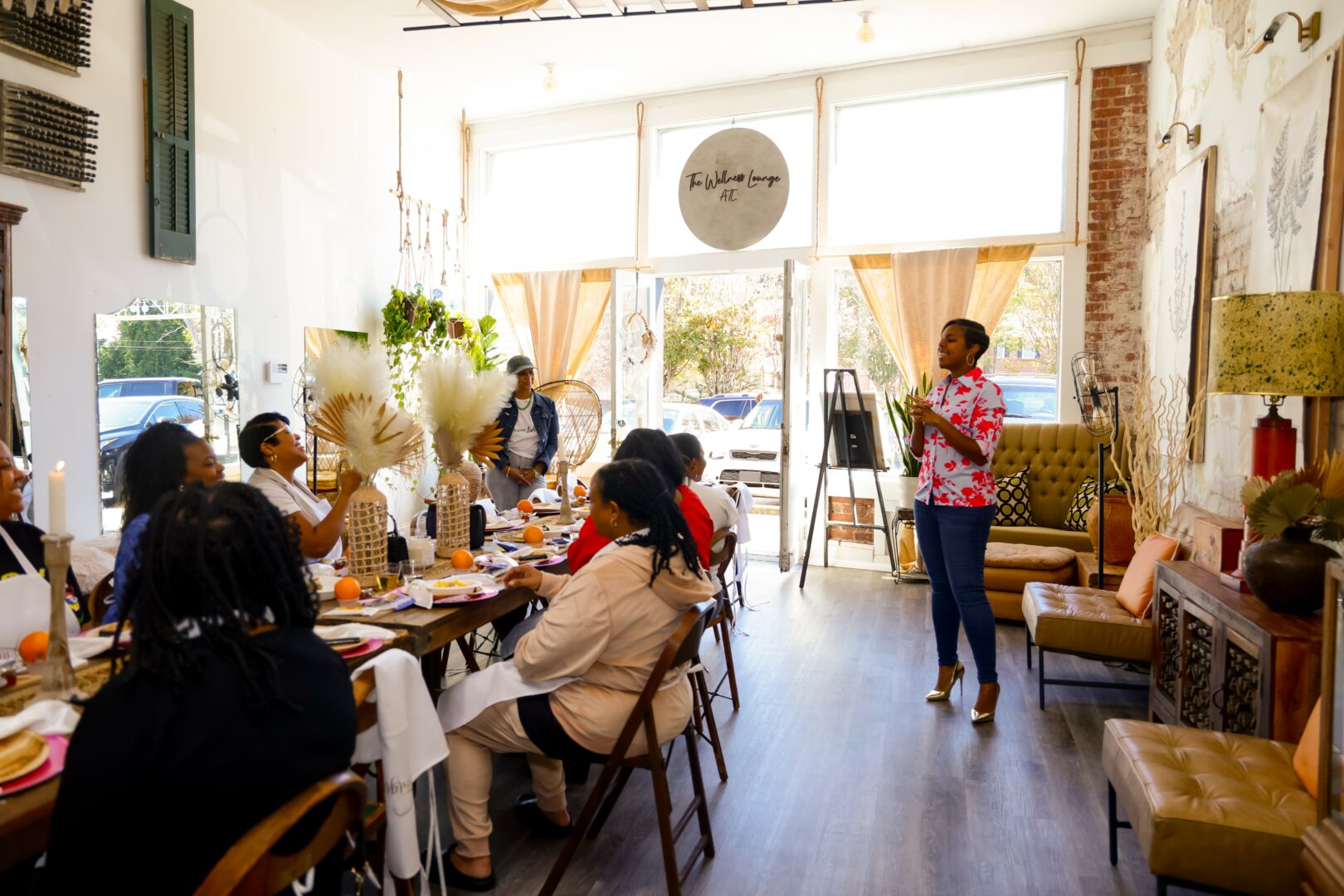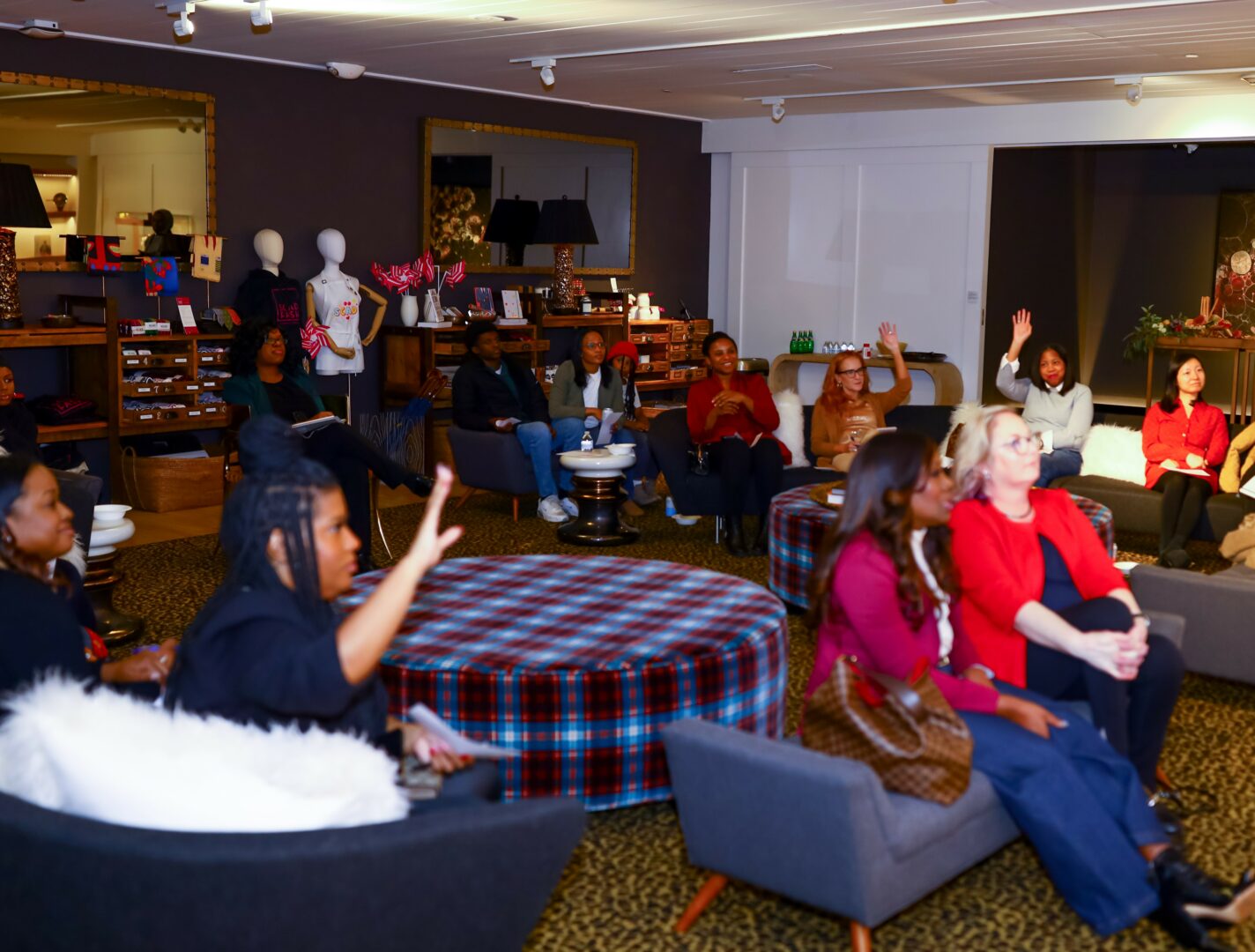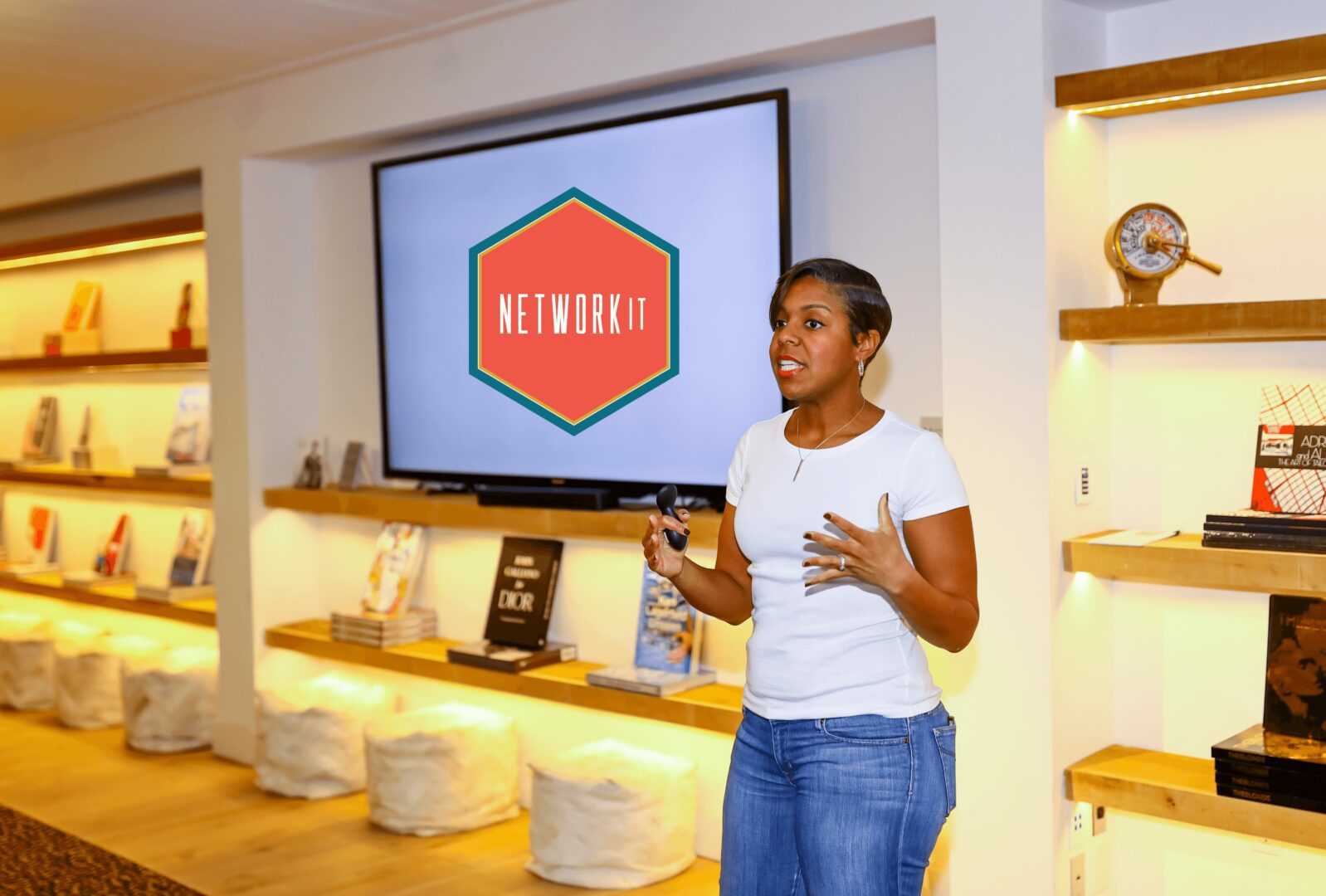We were lucky to catch up with Carline Hooker recently and have shared our conversation below.
Hi Carline, so excited to talk about all sorts of important topics with you today. The first one we want to jump into is about being the only one in the room – for some that’s being the only person of color or the only non-native English speaker or the only non-MBA, etc Can you talk to us about how you have managed to be successful even when you were the only one in the room that looked like you?
I’ve always been an extrovert–but the kind that enjoys entertaining–not the kind who enjoys talking to random strangers. My senior year of college, I stumbled into the world of advertising sales, finding comfort in sales support roles. (Also important to note–I was terrified of rejection, and saw sales as the scariest profession, ever.)
In these rooms, I was often the youngest, and usually one of few people of color. As a young observer, I had very little in common with the people confidently carrying on conversations. For a while, I wasn’t sure what to contribute that these “others” could relate to, and more importantly–that would make the conversation rich for all of us. When I finally saw sales done in a slightly consultative way, I was willing to say yes to sales (after a nudge from a great manager).
Shifting into the sales function was scary, but because my income now depended on it, I had to get creative in my search for connection with these people I had very little in common with, or so it seemed. This strategy evolved into what I now call the 6 Facets of Connection. These facets are essentially areas of a person’s world that you can be curious about to generate rich dialogue. It truly reveals the old adage, “We are much more alike, than we are different.”
Through NetworKIT, I now am able to empower others to lead their networking efforts with connection, allowing them to uncover interesting things to talk about with people who don’t look anything like them.

Appreciate the insights and wisdom. Before we dig deeper and ask you about the skills that matter and more, maybe you can tell our readers about yourself?
Networking was a critical part of my job, and I HATED it. I hated how transactional it was, and the part I felt I was “supposed” to play as a salesperson. After trying a few styles that did not fit me at all, I stopped considering things like job title and influence. I started considering just one thing: connection. And that change is what set me on a path of sustainable sales success. Almost two decades in, NetworKIT Coaching was born.
I now get excited teaching my connection strategies to others, especially small business owners and entrepreneurs. So many people are overwhelmed and intimidated of selling, like I once was. In my workshops, I teach how leading with connection gets you to your end goal in a more authentic and organic way. The strategies that created my sales success, I now offer to others through three opportunities:
1. NetworKIT Lead With Connection Workshop Series (1x month session for 4 months)
2. NetworKIT Mixer Experience (offered once monthly)
3. NetworKIT Crash Course (virtual power hour, offered once monthly)
Attendees walk away with a framework for connecting, rooted in who they actually are. They leave with actionable tools, feeling much more confident and prepared to “network”, as well as a stronger ability to follow up, and sustain connections long-term.
Looking back, what do you think were the three qualities, skills, or areas of knowledge that were most impactful in your journey? What advice do you have for folks who are early in their journey in terms of how they can best develop or improve on these?
The most impactful areas of knowledge for me have been: service, curiosity, and empathy.
Understanding that my purpose is ultimately about being in service to others takes the pressure off of getting my own needs met, because I’m more focused on being/becoming a resource for others. My advice is to expand “being of service” beyond what you offer. This will keep communication lines open when the person you’re talking to doesn’t need “what you sell”. There are so many other (non work-related) resources I’ve been able to exchange by maintaining this perspective.
Learning that it’s better to be interested, than to be interesting, has allowed me to prioritize curiosity. When you can be genuinely interested in who’s in front of you, you’re able to expand your views and perspectives by learning the most interesting things! But more importantly, you get the opportunity to see another person light up, in talking about something they are passionate about. This also allows you to make your follow-up experience with that person much more robust than the boring “Just following up; Just checking in.”
While empathy came very naturally to me, learning to apply it in business environments has made it much easier for me to not take things personally. My advice to improve on this is to constantly put yourself in other people’s shoes, and recognize that your timing is usually not their timing. When you do this, and allow yourself to be patient, your empathy ends up creating endless opportunities for you.

We’ve all got limited resources, time, energy, focus etc – so if you had to choose between going all in on your strengths or working on areas where you aren’t as strong, what would you choose?
I actually feel strongly that you don’t have to choose, and this is why–If you go all in on strengths, it enables you to confidently position yourself as a resource to others. By doing this, it makes it more manageable to connect with others by highlighting their strengths in those areas you are not as strong in. Doing this requires vulnerability, which enhances connection. By intentionally building a network centered on exchanging resources, you’re going all in on your strengths, while simultaneously becoming more well rounded. The effort you’re investing in improving areas you’re not as strong in translates into growing a network for yourself that eliminates weakness. You’re able to rely on your network for any and everything you might need.
For example, an area I excel in is careful, and thoughtful planning. A close friend of mine is strong in quick and strategic execution. While my planning function is strong, I’m able to celebrate my close friend’s strength in execution and highlight the value that it brings to the table. In that, I’m able to elevate my execution by gleaning from her–and she also has been able to elevate her planning function by hanging with me. Our strengths remain our strengths, but the vulnerability that our connection allows, makes it easy for us be confident in our strengths, yet willing to learn from each other and become more well-rounded than before.
Contact Info:
- Website: https://www.networkitcoach.com/
- Instagram: https://www.instagram.com/networkitcoach/
- Linkedin: https://www.linkedin.com/company/networkitcoaching

Image Credits
Colurwrk
so if you or someone you know deserves recognition please let us know here.




